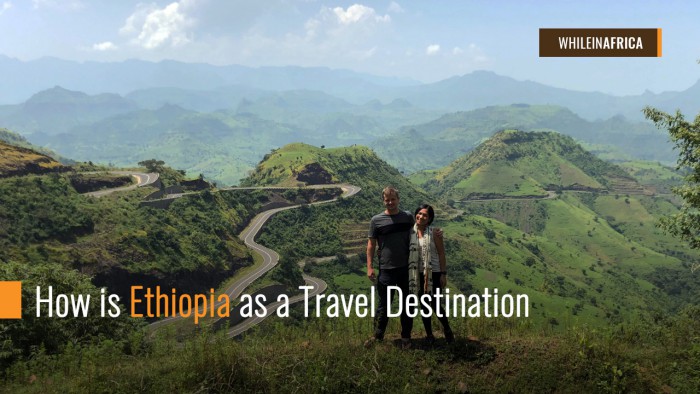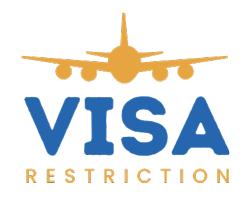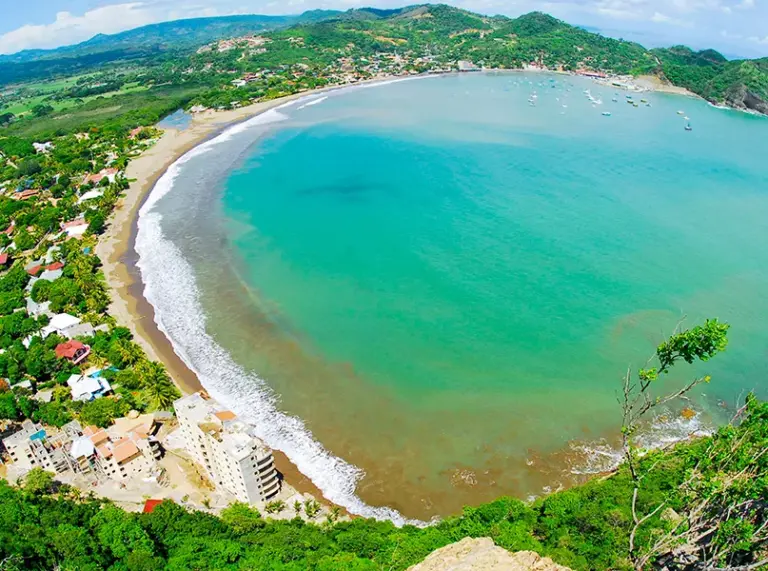Is It Safe to Travel to Ethiopia: Tourism Guide

Travel Safety in Ethiopia
Understanding Travel Advisories
When considering the question, “is it safe to travel to Ethiopia,” it’s essential to review current travel advisories. Travel advisories can provide valuable information about the safety of traveling to a certain destination. These advisories are regularly updated by various government agencies and health organizations like the Centers for Disease Control and Prevention (CDC). They categorize travel advisories into four levels:
| Advisory Level | Description |
|---|---|
| Level 4 | Avoid All Travel |
| Level 3 | Reconsider Nonessential Travel |
| Level 2 | Practice Enhanced Precautions |
| Level 1 | Practice Usual Precautions |
As of the latest updates:
- The CDC and other governmental bodies have advised against all travel (Level 4) to specific regions in Ethiopia, including the Tigray Region and areas along the border with Eritrea due to sporadic violent conflict and civil unrest (Travel.State.Gov).
- The Foreign, Commonwealth & Development Office (FCDO) advises against all travel to several regions such as Tigray, Amhara, and Gambela. They suggest reconsidering non-essential travel to other areas due to threats like crime, terrorism, and civil unrest.
Human Rights and Safety Concerns
Apart from the general travel advisories, human rights and safety concerns are significant factors to consider. Ethiopia has been facing several challenges related to internal displacement, civic space erosion, and human rights violations. Key concerns include:
- Internal Displacement and Refugee Crisis: Internal conflicts have led to the displacement of thousands of people, particularly in regions like Tigray, Amhara, and Afar. These areas experience frequent clashes between different groups, leading to heightened security risks.
- Erosion of Civic Space: The overall erosion of civic space in Ethiopia, illustrated by increased government crackdowns, limits freedom of expression and assembly. This makes it risky for travelers who might inadvertently become involved in protests or other civil activities.
To ensure personal safety, it is crucial to stay updated with the latest travel advisories and understand the risks and safety measures in Ethiopia. For more information on travel safety in other regions, you can also explore our guides on is it safe to travel to mexico and is it safe to travel to jamaica.
By keeping these factors in mind, you can make an informed decision about your travel plans. For a broader view on travel safety, refer to the links provided for similar destinations:
Current Situation in Ethiopia
Understanding the current situation in Ethiopia is crucial if you are asking, “is it safe to travel to Ethiopia?” Below, we explore two significant issues impacting travel safety in the country: internal displacement and refugee crisis, and the erosion of civic space.
Internal Displacement and Refugee Crisis
Ethiopia has faced significant internal displacement due to ongoing conflicts. As of September 2023, the United Nations Refugee Agency (UNHCR) reported 2.9 million internally displaced people in Ethiopia (Human Rights Watch). This number highlights the severity of the conflict and its impact on local populations.
In 2021 alone, Ethiopia saw a record displacement of 5.1 million people, making it the highest number of internally displaced persons in any single country that year. Many Ethiopians also fled to neighboring countries, including Sudan, to seek refuge (CFR).
| Statistic | Figure |
|---|---|
| Internally Displaced People (Sep 2023) | 2.9 million |
| Ethiopian Refugees and Asylum Seekers | 141,000 |
| Record Internal Displacement (2021) | 5.1 million |
The repercussions of the conflict in regions like Tigray have also led to broader regional instability, affecting not only Ethiopia but the entire Horn of Africa, which is already dealing with other armed conflicts in Somalia, Sudan, and South Sudan (CFR).
Erosion of Civic Space
Civic space in Ethiopia has continued to erode, with authorities increasingly harassing and detaining critical voices. According to Human Rights Watch, 2023 saw numerous arrests of journalists, political figures, and opposition leaders. This suppression forces many activists, journalists, and opposition members into silence or exile.
Efforts towards accountability and justice for past and ongoing abuses have been criticized for their lack of transparency and independent oversight. The conflict in Tigray, for instance, has seen numerous atrocities, yet accountability measures remain inadequate.
The ongoing conflict and instability have severe implications for human rights and civic freedoms. Authorities have been known to disrupt protest activities and restrict freedom of expression, adding to the complexities travelers might face while in the country.
For more information on safety concerns, consider reading our articles on is it safe to travel to Kenya and is South Africa safe to travel.
By understanding these critical aspects of Ethiopia’s current situation, you can better assess the risks involved in traveling to the country. Stay informed and prioritize safety by consulting foreign office advisories and other reliable sources.
Foreign Office Advisories
Regions with Travel Restrictions
When considering whether it is safe to travel to Ethiopia, it’s essential to be aware of the regions with travel restrictions. Both the UK’s Foreign, Commonwealth & Development Office (FCDO) and the U.S. Department of State have issued advisories against traveling to specific areas in Ethiopia due to conflict and safety concerns.
| Region | Travel Advisory |
|---|---|
| Tigray | Advisories against all travel due to ongoing conflict |
| Amhara | Advisories against travel due to civil unrest and violence |
| Afar | Advisories against travel due to conflict |
| Gambela | Advisories due to risks of violent conflict |
| Somali | Advisories due to risks of terrorism and kidnapping |
| Sidama | Advisories due to localized conflicts and violent demonstrations |
| Benishangul-Gumuz | Advisories due to ethnic violence and civil disturbances |
| Central, Southern, South West | Advisories against travel due to general safety risks |
For further details, see the FCDO advisory and U.S. Department of State travel advisory.
Assistance and Emergency Contacts
If you require urgent assistance from the UK government while in Ethiopia—such as in situations of arrest or forced marriage concerns—contact the British Embassy in Addis Ababa or reach out to the FCDO in the UK.
FCDO Emergency Contacts:
- British Embassy in Addis Ababa: Unable to offer support in person in restricted areas.
- FCDO UK Contact Number: 020 7008 5000 (Source).
For U.S. citizens, there are also several important contacts and services available. Note that the U.S. Embassy has limited abilities to assist outside of Addis Ababa and in areas under advisory restrictions.
U.S. Emergency Contacts:
- U.S. Embassy in Ethiopia: Limited consular services outside Addis Ababa.
- Internet shutdowns and phone service restrictions may impede the ability to communicate and offer consular services during civil unrest.
For more information on travel advisories and risk assessments for other countries, check out our pages on is it safe to travel to mexico, is it safe to travel to colombia, and is it safe to travel to vietnam.
Risks and Safety Measures
Health and Vaccination Concerns
Traveling to Ethiopia comes with certain health risks, so it’s essential to be prepared and take necessary precautions. The CDC recommends that travelers to specific areas in Ethiopia take prescription medicine to prevent malaria. Depending on the type of medication, you may need to start taking it several days before your trip, continue during, and even after your departure (CDC).
| Health Concern | Recommendation |
|---|---|
| Malaria | Take prescription antimalarial medicine |
| Polio | Complete vaccination series as a child + single booster dose or complete series if unvaccinated |
| Rabies | Avoid interactions with animals; rabies vaccines often not available locally |
| Schistosomiasis | Avoid swimming in fresh, unchlorinated water |
Poliovirus, a significant health concern, has been identified in Ethiopia within the past year (CDC). For adults who completed the polio vaccine series in childhood, a single booster dose of inactivated polio vaccine is recommended. Those unvaccinated or not fully vaccinated should complete their polio vaccine series before traveling.
Rabies is another risk, commonly found in dogs and some wildlife species in Ethiopia. Rabies vaccines are typically not readily available in the country, making it vital to avoid interactions with animals (CDC).
Additionally, schistosomiasis, a parasitic infection spread through fresh water, is present in Ethiopia. To avoid contracting this infection, refrain from swimming in unchlorinated fresh water such as lakes, ponds, or rivers (CDC).
For more information on maintaining your health and well-being while traveling, explore our health and safety tips.
Security Risks and Terrorism
Travel advisories for Ethiopia indicate a high overall risk level, with a recommendation to avoid non-essential travel due to various security risks. As of the latest update on October 29, 2024, civil unrest, violence, armed conflict, and crime are significant concerns (Travel.gc.ca). The following table summarizes regions with specific advisories:
| Region | Advisory Level | Main Concerns |
|---|---|---|
| Northern Regions | Avoid all travel | Armed conflict, civil unrest |
| Central Regions | Avoid all travel | Unpredictable security situations, violence |
| Border Areas | Avoid all travel | Civil unrest, armed conflict |
To ensure your safety, stay informed about current travel advisories and heed regional restrictions. For real-time updates and assistance, keep emergency contact information handy. Review our article on travel recommendations for Ethiopia to plan a safer trip.
Always prioritize your well-being by staying vigilant and alert. Understanding potential risks and adopting preventive measures can help you enjoy your travel experience while minimizing hazards. For further travel safety advice, visit our guide on is it safe to travel to Mexico.
Travel Recommendations for Ethiopia
If you are wondering, “is it safe to travel to Ethiopia?”, this section will provide you with key insights to make your journey enjoyable and safe.
Cultural and Geographic Highlights
Ethiopia offers a blend of rich culture, historic landmarks, and stunning landscapes, making it a unique destination for travelers. Known as the birthplace of coffee and a country that has never been colonized, Ethiopia boasts numerous attractions:
-
Historic Sights: Cities like Lalibela, with its rock-hewn churches, Aksum, Gondar, and the Omo Valley offer a glimpse into Ethiopia’s ancient history and rich cultural heritage.
-
Diverse Cultures: Each region showcases its own unique lifestyle, from the traditional tribes in the Omo Valley to urban centers like Addis Ababa. Ethiopian culture is fascinating with a unique time system and a vibrant food culture featuring injera—a pancake-like flatbread served with various viands.
| Landmark | Description |
|---|---|
| Lalibela | Rock-hewn churches known as the “Eighth Wonder of the World” |
| Aksum | Ancient city known for its obelisks and archaeological sites |
| Gondar | Historic castles and bathhouses |
| Omo Valley | Home to diverse tribes and traditional cultures |
For more wonders, consider exploring other unique destinations such as is it safe to travel to Egypt or is it safe to travel to Morocco.
Infrastructure and Travel Tips
Ethiopia, being a developing country, presents certain infrastructural limitations. Understanding these can help you prepare better for your trip.
-
Transportation: The majority of tourists arrive in Addis Ababa, the capital city. From there, you can use airlines to reach distant historic sites like Lalibela. Road travel is also an option, providing a scenic view of the countryside, but be prepared for bumpy roads and unpredictable schedules for long-distance buses.
-
Accommodations and Facilities: Budget accommodations are basic, and you may encounter limited access to public toilets and unreliable internet service. Supermarkets are not widespread, and while ATMs are available, many places do not accept credit cards. It’s advisable to carry cash.
-
Travel Operators: For a smoother experience, consider using local travel operators. They can arrange tours and ensure you don’t miss out on key sites.
| Feature | Status |
|---|---|
| Roads | Bumpy and uneven |
| Internet | Unreliable |
| Public Toilets | Limited in some areas |
| Supermarkets | Minimal options |
| Credit Card Acceptance | Limited |
For further travel tips and infrastructures comparison, you might find useful information in our articles on is it safe to travel to Peru and is Brazil safe to travel.
Ethiopia, with its intricate blend of history and culture, presents an enriching travel experience despite its infrastructural challenges. By being prepared and well-informed, you can enjoy the unique wonders Ethiopia has to offer.
Precautions and Safety Tips
Crime and Safety Concerns
When questioning “is it safe to travel to Ethiopia,” understanding the crime and safety concerns is crucial. Mugging, theft, and sexual harassment are common, particularly in crowded areas and near Bole International Airport. Criminal groups, including children, may use distraction techniques for theft. Incidents may involve knifepoint robberies or physical attacks leading to unconsciousness.
Safety Measures:
- Be cautious in crowded public places.
- Keep a close eye on your belongings.
- Avoid traveling alone, especially at night.
- Use road transport and avoid walking alone after dark.
| Safety Concerns | Precautions |
|---|---|
| Mugging | Stay vigilant in crowded areas |
| Theft | Monitor personal belongings |
| Knifepoint Robberies | Avoid isolated areas |
| Sexual Harassment | Be cautious in public transport |
Awareness and Action Steps
Travellers of Amhara, Tigrayan, or Oromo ethnicity may face scrutiny, including police operations, road checkpoints, and house searches. Ethnic Tigrayans report being prevented from boarding flights (UK Foreign Travel Advice). Foreigners risk arbitrary detention, especially during major events or in sensitive security areas. Kidnapping is a notable risk in regions like Oromia and southern parts of Somali Regional State (Smart Traveller). Additionally, landmines are a hazard near borders with Eritrea, Sudan, and Somalia.
Action Steps:
- Avoid confrontation and comply with authorities.
- Carry a paper copy of your passport.
- Have contact details for your embassy.
- Stay on well-travelled roads near borders.
| Risks | Actions |
|---|---|
| Police Scrutiny | Follow instructions, avoid confrontation |
| Arbitrary Detention | Carry passport and embassy contacts |
| Kidnapping | Avoid high-risk areas |
| Landmines | Stick to well-travelled roads |
For further safety tips, visit our articles on is it safe to travel to kenya or is it safe to travel to south africa. For additional travel guidance, check out is it safe to travel to mexico or browse our is it safe to travel series for other destinations.






